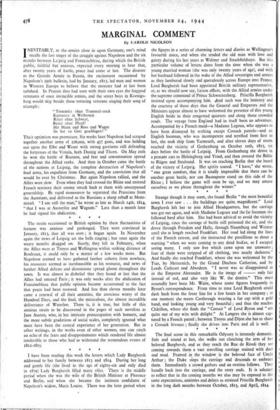The strain occasioned to British opinion by these fluctuations of
fortune was anxious and prolonged. They were convinced in January, 1813, that all was over ; it began again. In November again the news of Leipzig set the bells ringing ; but once again the weary months dragged on. Surely, they felt in February, when the Allies were at Troyes and Wellington within striking distance of Bordeaux, it could only be a matter of a few weeks more. But Napoleon seemed to have gathered further cohorts from nowhere, his resources seemed as inexhaustible as his resource, and news of further Allied defeats and dissensions spread gloom throughout the town. It was almost in disbelief that they heard at last that the Allies had entered Paris ; it was only weeks after the abdication of Fontainebleau that public opinion became accustomed to the fact that peace had been restored. And less than eleven months later came a renewal of all their anxieties, the atrocious worry of the Hundred Days, and the final, the miraculous, the almost incredible deliverance of Waterloo. There is, it is true, but little of this anxious strain to be discovered in the pages of such novelists as Jane Austen, who, in her intricate preoccupation with bonnets, and the more subtle gradations of social scales, completely ignored what must have been the central experience of her generation. But in other writings, in the works even of other women, one can catch an echo of the fears and disappointments which rendered life almost intolerable to those who had to withstand the tremendous events of 1812-1815.


























 Previous page
Previous page